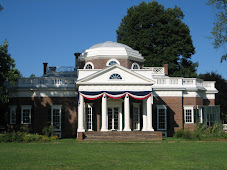
The Chipmunks are back!
They're cuter than ever...
Take the Poll!
They're cuter than ever...
Take the Poll!
 Question: How could software applications and/or other technologies help you provide opportunities for your students to access their prior knowledge and better organize new information? That is, describe a lesson for which you might use technology to help with organization and describe the technology(ies) you might use.
Question: How could software applications and/or other technologies help you provide opportunities for your students to access their prior knowledge and better organize new information? That is, describe a lesson for which you might use technology to help with organization and describe the technology(ies) you might use. QUESTION: Constructivist learning environments focus on giving students authentic, real-world, ill-structured problems to solve. What methods (based on your readings) could you as a teacher use (with or without technology to support you) to facilitate this process? That is, how would you provide scaffolding for students in a given environment (you might want to use a specific lesson/learning environment as a way to discuss scaffolds).
QUESTION: Constructivist learning environments focus on giving students authentic, real-world, ill-structured problems to solve. What methods (based on your readings) could you as a teacher use (with or without technology to support you) to facilitate this process? That is, how would you provide scaffolding for students in a given environment (you might want to use a specific lesson/learning environment as a way to discuss scaffolds). At the hearing of the word "constructivism", I cringed and began having nightmare flashbacks of educational theory classes back in graduate school. I have never been a fan of educational theory because every theory sounds too perfect – with captivating phrases like “authentic exploration”, “intrinsically motivating”, “dynamic collaboration” or “meaningful reflection”… what on earth does it all mean, realistically? And if it's so great, why didn't we make a nation wide announcement and get started on changing the system?
At the hearing of the word "constructivism", I cringed and began having nightmare flashbacks of educational theory classes back in graduate school. I have never been a fan of educational theory because every theory sounds too perfect – with captivating phrases like “authentic exploration”, “intrinsically motivating”, “dynamic collaboration” or “meaningful reflection”… what on earth does it all mean, realistically? And if it's so great, why didn't we make a nation wide announcement and get started on changing the system? My first and foremost obsession is with CNN's 360 anchor Anderson Cooper - his witty humor and intellectual charm makes watching news a mesmerizing experience. Even before his renown coverage of hurricane Katrina, I was in love with Anderson Cooper's overall persona. Anderson Cooper's stories always conveyed an indescribable sincerity amidst every mind-boggling controversy or heart-breaking circumstance. As lame as it sounds, I feel like a better person whenever I watch Anderson Cooper anchor his nightly show, or read his news blog online - he seem to have a genuine zeal in pursuing justice in the world and his passion is contagious! Believe it or not, I've emailed him and invited him to speak to my students about journalism because the story of how he got started in the field is really inspirational - unfortunately for me, his busy schedule would not allow him to hang out with middle schoolers for a day... sigh, I guess I will continue to admire from afar!
My first and foremost obsession is with CNN's 360 anchor Anderson Cooper - his witty humor and intellectual charm makes watching news a mesmerizing experience. Even before his renown coverage of hurricane Katrina, I was in love with Anderson Cooper's overall persona. Anderson Cooper's stories always conveyed an indescribable sincerity amidst every mind-boggling controversy or heart-breaking circumstance. As lame as it sounds, I feel like a better person whenever I watch Anderson Cooper anchor his nightly show, or read his news blog online - he seem to have a genuine zeal in pursuing justice in the world and his passion is contagious! Believe it or not, I've emailed him and invited him to speak to my students about journalism because the story of how he got started in the field is really inspirational - unfortunately for me, his busy schedule would not allow him to hang out with middle schoolers for a day... sigh, I guess I will continue to admire from afar! As of late, I've been awestruck by another brilliant man in the news - Brian Williams, the anchor of NBC's Nightly News. Perhaps its the soothing sound of his voice or the deeply thoughtful and warm expression of his face... I find Brian Williams to be extremely attractive. In May, I was honored to attend a luncheon hosted by the Foreign Policy Association in Manhattan with a distinguished panel of journalists - Brian Williams, Andrea Mitchell and David Gregory. Although I probably did not grasp everything that was said about the world situation by the panelists, I felt smarter just simply being in their presence! Recently, there's also an interesting Brian Williams pop quiz interview article posted on George Lucus Educational Foundation website in which he commented on his view of education.
As of late, I've been awestruck by another brilliant man in the news - Brian Williams, the anchor of NBC's Nightly News. Perhaps its the soothing sound of his voice or the deeply thoughtful and warm expression of his face... I find Brian Williams to be extremely attractive. In May, I was honored to attend a luncheon hosted by the Foreign Policy Association in Manhattan with a distinguished panel of journalists - Brian Williams, Andrea Mitchell and David Gregory. Although I probably did not grasp everything that was said about the world situation by the panelists, I felt smarter just simply being in their presence! Recently, there's also an interesting Brian Williams pop quiz interview article posted on George Lucus Educational Foundation website in which he commented on his view of education. Every year on Sept. 21st, nations around the world observe the International Day of Peace, established by the United Nations as a day of non-violence and a cessation of hostilities in order to promote peaceful conflict resolution. This year, through the help and contacts of my T.E.A.M. mentors, I was able to arrange for 115 of my 7th grade students from Herricks Middle School to participate in the UN's 10th annual student observance of the International Day of Peace at the organization's headquarter in Manhattan.
Every year on Sept. 21st, nations around the world observe the International Day of Peace, established by the United Nations as a day of non-violence and a cessation of hostilities in order to promote peaceful conflict resolution. This year, through the help and contacts of my T.E.A.M. mentors, I was able to arrange for 115 of my 7th grade students from Herricks Middle School to participate in the UN's 10th annual student observance of the International Day of Peace at the organization's headquarter in Manhattan. What do I hope to learn from this T.E.A.M. program? Well, honestly I don't know anymore - before last week, I've simply wanted to be better at using the computer and learn some new tricks to keep my students entertained from time to time. After checking out one website after another, one blog site after another, one wiki after another, one video after another... I realized that my simple website through the Herricks School District is only a tiny step into the tremendous possibilities of technology usage in the world of education.
What do I hope to learn from this T.E.A.M. program? Well, honestly I don't know anymore - before last week, I've simply wanted to be better at using the computer and learn some new tricks to keep my students entertained from time to time. After checking out one website after another, one blog site after another, one wiki after another, one video after another... I realized that my simple website through the Herricks School District is only a tiny step into the tremendous possibilities of technology usage in the world of education. Today is the birth of my blog! I've never kept a journal online, always believing that personal thoughts are the few things in life we can truly keep to ourselves if we chose to. In this age of self display and free expression, a little mystery kept to yourself can be a refuge. In this digital world surrounded by computers, a hand written diary of your raw emotions, warped with teardrops, and hidden under your pillow is still something very precious....
Today is the birth of my blog! I've never kept a journal online, always believing that personal thoughts are the few things in life we can truly keep to ourselves if we chose to. In this age of self display and free expression, a little mystery kept to yourself can be a refuge. In this digital world surrounded by computers, a hand written diary of your raw emotions, warped with teardrops, and hidden under your pillow is still something very precious....




